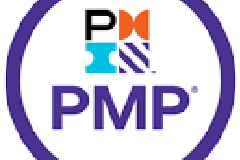The PMP (Project Management Professional) certification is an internationally recognized credential for project managers that validates their skills and knowledge in project management. To obtain this certification, candidates must pass a rigorous exam that tests their proficiency in project management processes and best practices.
To prepare for the PMP exam, many professionals choose to take a PMP training course. PMP training courses are designed to provide candidates with the knowledge and skills they need to pass the PMP exam successfully. These courses are available in various formats, including classroom training, online courses, and self-study materials.
In a PMP training course, candidates will learn about the five project management process groups: initiating, planning, executing, monitoring and controlling, and closing. They will also learn about the ten knowledge areas of project management, which include project integration, scope, time, cost, quality, human resources, communications, risk, procurement, and stakeholder management.
PMP training courses cover a wide range of topics, including project planning, scheduling, budgeting, risk management, communication, and stakeholder engagement. Candidates will learn how to develop a project plan, manage project scope, estimate project costs, and manage project risks. They will also learn how to communicate effectively with team members, stakeholders, and vendors to ensure project success.
Many PMP training courses also provide practice exams and other study materials to help candidates prepare for the PMP exam. These materials may include practice questions, flashcards, and study guides.
Overall, PMP training courses are an excellent way for project managers to enhance their skills and knowledge in project management. They provide candidates with the tools and techniques they need to successfully manage projects from start to finish and to pass the PMP certification exam.







